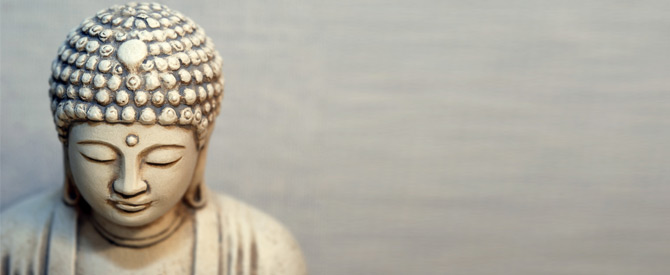Row, row, row your boat, gently down the stream. Merrily, merrily, merrily, merrily life is but a dream.—Children’s Folk song
This children’s song is well known and popular. Behind its simple rhyme lies a profound truth—life is like a dream.
How can this be true?
Think of a time when you were planning and looking forward to an event such as a wedding, a graduation, a vacation or Christmas. When it finally came, you enjoyed and celebrated it but it ended, and all you were left with were photos and some memories that soon began to fade. Doesn’t it feel like it was a dream?
Even long-term relationships, jobs and life phases such as childhood and youth feel very real while we are living through them. But when they end, they fade in our memories like dreams when we wake up.
Our experiences are mental projections
The feeling that our experiences are dream-like is validated by Vedanta, the spiritual science of life. It tells us that the entire gamut of our human experiences is not real but merely our mental projections.
To support this, Vedanta explains that our minds go through three states of consciousness every day:
- The waking state,
- The dream state,
- The deep sleep state.
In the waking state, our minds take in sensory perceptions through the ears, skin, eyes, tongue and nose and interpret them based on a storehouse of previous memories. All thoughts and emotions associated with those memories colour what we perceive and how we respond to them.
For example, if you were bitten by a dog in the past, you may fear and back away from every dog that approaches you, no matter how friendly it may be.
What we perceive may not actually be true.
When we go to bed every night, we withdraw from the waking state and move into the dream or deep sleep state.
In the dream state, the waking world is no longer perceived but another personal world is projected by the mind. Impressions taken in during the waking state express themselves as the dream world and dream experiences.
These experiences are obviously unreal because when we wake up, they fade away and disappear.
When the mind enters the deep sleep state, neither the waking nor the dream world is experienced. There is a complete absence of experiences.
The world outside becomes non-existent to us and reappears only when we wake up and our mind is active again.
Not absolutely real
When the mind is awake, it is cognizant of the waking world. When the mind enters the dream state, it projects a dream world. And in deep sleep, the mind is unaware of both the waking and the dream worlds.
Since the waking, dream and deep sleep states are temporary and come and go depending on the state of the mind, they cannot be absolutely real.
Vedanta explains that if something were absolutely real, it would never be negated (appear and disappear, experienced and not-experienced).
So, what is real?
Is there anything that is never negated and always present?
Yes, there is. It’s spirit or the Self—the real you.
Vedanta asserts that the Self is Pure Consciousness that is ever-present and unaffected by the various experiences and states of the mind.
Whether you are aware of your waking world experiences, your dream world experiences or the total lack of experiences in the deep sleep state, you, the Self remain the changeless inner witness of them all.
Why it’s important to know that life is like a dream
Even though we know that the story and the characters in a movie aren’t real, we expect the actors to play their parts convincingly, as though they were real. In fact, we commend a performer who totally immerses herself in her part.
Similarly, knowing that life is like a dream doesn’t mean that you shouldn’t care how it turns out or live recklessly. After all, it’s real to you while it’s happening.
The key is to maintain the awareness that you are only playing a role. If an actress forgot her real identity and continued to play her role outside of the movie, we’d all think that she was mad.
Remembering that life is temporary and dream-like will help you keep the right perspective and refine how you respond to things and people. Like a successful actor playing a part in a movie, you’d put in your best without getting attached to your role, the story or your fellow actors.
You’d give importance where it’s due. You’d tolerate petty annoyances and things knowing that they don’t matter in the end. As author Richard Carlson puts it, you wouldn’t “sweat the small stuff.”
It wouldn’t be about winning the game of life but meeting your challenges to the best of your ability without worrying about how things will turn out.
Choose to end the dream and find out who you really are
Just knowing that life is like a dream and living this truth wisely isn’t enough. We must wake up from this dream and rediscover who we really are. This is one of the things mentioned in an inspiring video by Prince EA, a black American former rapper, now speaker and activist.
He talks about the song. “Row, row, row your boat” and brings up some of the spiritual truths explained in this article. To watch his video, Click here.
He tells us that the ancient sages and gurus were all saying the same thing—that this life is indeed like a passing dream.
Like this post? Sign up for the free fortnightly Spiritual Solutions Newsletter and receive the latest articles, news and updates in your email inbox!












Your piece resonates with my sentiments that our existence has many imperfections, filled with ups and downs and seems unreal. I think a big part of that is due to the problem of identifying ourselves as the body and the mind. Surely, there must be a state we must aspire to achieve for our souls to be free, complete and happy forever. The way I like to look at it is that the more we develop awareness that we are soul and can rise above the passions of ego, jealousy, love, greed and anger and play our part to the best of our ability, helping and caring for each other (animals included) and stay in communion with our Creator, then the more we will rise in our consciousness. We will then see the Creator’s hand in everything we do, and then and only then we may be able to wake up from our dream and see reality unravelling.
Love your reflections George! Yes, when we function thinking that we are our body and mind, we forget our real nature and get tossed about by this dreamlike existence. The solution is indeed as you have pointed out—rise in our consciousness (through the methods you point out) until we wake up rediscover who we really are. Thanks for sharing!